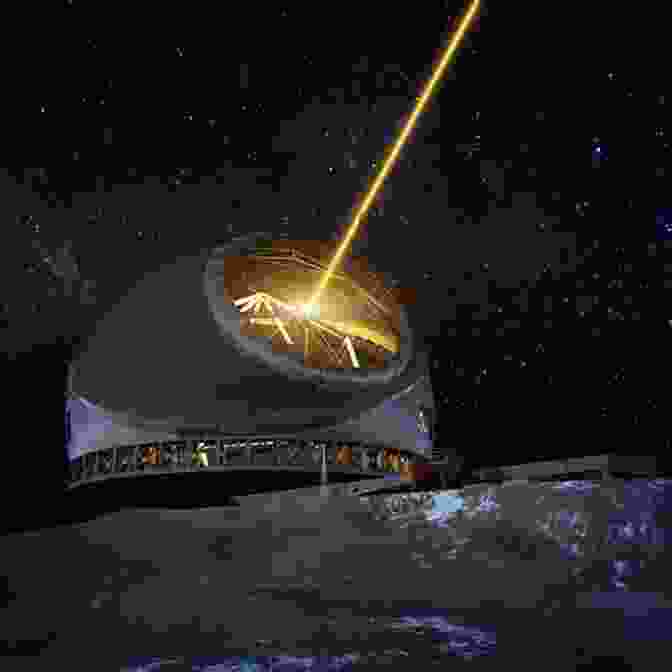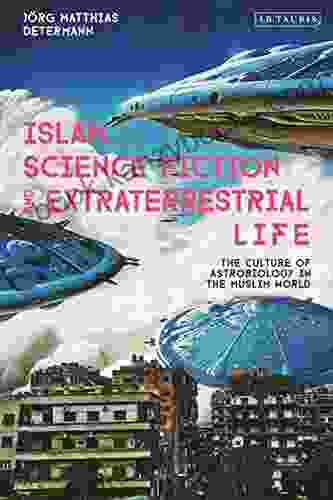Unveiling the Celestial Tapestry: The Culture of Astrobiology in the Muslim World

In the vast expanse of the cosmos, where stars twinkle and planets orbit, there lies a profound connection between celestial exploration and the rich tapestry of human culture. The Muslim world, with its centuries-old heritage of scientific inquiry and spiritual contemplation, has played a pivotal role in shaping our understanding of the universe beyond our own planet. The emergence of astrobiology, the study of life in the universe, has ignited a renewed interest in exploring this celestial connection further.
The Golden Age of Muslim Astronomy
The fascination with astronomy in the Muslim world flourished during the Islamic Golden Age (8th-14th centuries),a period marked by groundbreaking scientific advancements. Scholars like al-Khwarizmi, al-Battani, and al-Biruni made significant contributions to the fields of trigonometry, mathematics, and astronomy. Their observatories, such as the famous House of Wisdom in Baghdad, became centers of knowledge, where astronomers meticulously mapped the night sky and studied celestial bodies.
5 out of 5
| Language | : | English |
| File size | : | 2930 KB |
| Text-to-Speech | : | Enabled |
| Enhanced typesetting | : | Enabled |
| Print length | : | 370 pages |
| Screen Reader | : | Supported |

Philosophical Musings on Extraterrestrial Life
Beyond the empirical realm, Muslim philosophers also grappled with the question of life beyond Earth. In the 12th century, the Persian philosopher al-Ghazali proposed the idea of a "plurality of worlds," suggesting that the universe contained countless other planets with the potential for supporting life. Other scholars, such as Ibn Rushd (Averroes) and al-Farabi, contemplated the nature of extraterrestrial beings and their possible communication with humans.

Astrobiology in the Modern Muslim World
In recent decades, astrobiology has re-emerged as a vibrant field of research in the Muslim world. Scientists and scholars at institutions such as the International Astronomical Union (IAU) and the King Abdullah University of Science and Technology (KAUST) are actively involved in the search for life beyond Earth. Observatories like the Okazaki-Kyoto Schmidt Telescope (OKST) in Saudi Arabia are contributing to the detection and characterization of exoplanets, planets outside our solar system.

The Cultural Impact of Astrobiology
The pursuit of astrobiology has had a profound impact on Muslim culture. It has inspired works of art, literature, and popular culture that explore themes of extraterrestrial life and our place in the cosmos. Writers like Ahmed Zewail and S. M. Shamsuddin have penned novels and short stories that delve into the scientific and philosophical aspects of astrobiology, while filmmakers have produced thought-provoking documentaries and movies that captivate audiences with the wonders of the universe.

The culture of astrobiology in the Muslim world is a testament to the enduring fascination with the cosmos and the quest for knowledge that has characterized Muslim civilization throughout history. From the golden age of astronomy to the modern era of scientific research, Muslim scholars and scientists have made invaluable contributions to our understanding of the universe and our place within it. As we continue to explore the celestial tapestry, the rich legacy of the Muslim world in astrobiology will continue to inspire and inform our exploration of the unknown.
5 out of 5
| Language | : | English |
| File size | : | 2930 KB |
| Text-to-Speech | : | Enabled |
| Enhanced typesetting | : | Enabled |
| Print length | : | 370 pages |
| Screen Reader | : | Supported |
Do you want to contribute by writing guest posts on this blog?
Please contact us and send us a resume of previous articles that you have written.
 Book
Book Novel
Novel Page
Page Chapter
Chapter Text
Text Story
Story Genre
Genre Reader
Reader Library
Library Paperback
Paperback E-book
E-book Magazine
Magazine Newspaper
Newspaper Paragraph
Paragraph Sentence
Sentence Bookmark
Bookmark Shelf
Shelf Glossary
Glossary Bibliography
Bibliography Foreword
Foreword Preface
Preface Synopsis
Synopsis Annotation
Annotation Footnote
Footnote Manuscript
Manuscript Scroll
Scroll Codex
Codex Tome
Tome Bestseller
Bestseller Classics
Classics Library card
Library card Narrative
Narrative Biography
Biography Autobiography
Autobiography Memoir
Memoir Reference
Reference Encyclopedia
Encyclopedia Marc Taro Holmes
Marc Taro Holmes Mark D Smith
Mark D Smith Zendaya Kaiya
Zendaya Kaiya Maureen Schulman
Maureen Schulman Wayne Jonas
Wayne Jonas Ludwig Alsdorf
Ludwig Alsdorf Monica Holland
Monica Holland Paul Gannon
Paul Gannon Pam Wattenbarger
Pam Wattenbarger Marie Shain
Marie Shain Charles W Colson
Charles W Colson Lakshmi Vemuri
Lakshmi Vemuri Rebecca Mcdonald
Rebecca Mcdonald Melissa Harvey
Melissa Harvey Shaggydoggs Publishing
Shaggydoggs Publishing Marcelle Bienvenu
Marcelle Bienvenu Ramaji
Ramaji Marla Tetsuka
Marla Tetsuka Rick Ellinger
Rick Ellinger Nicole Hallissey Ms Rdn Cdn
Nicole Hallissey Ms Rdn Cdn
Light bulbAdvertise smarter! Our strategic ad space ensures maximum exposure. Reserve your spot today!

 Samuel BeckettUnleash the Power of the Mediterranean Diet for Multiple Sclerosis: 'Cooking...
Samuel BeckettUnleash the Power of the Mediterranean Diet for Multiple Sclerosis: 'Cooking...
 Derrick HughesThe Essential Vehicle Survival Kit for Emergencies: Practical Survival for...
Derrick HughesThe Essential Vehicle Survival Kit for Emergencies: Practical Survival for...
 Michael ChabonUnveiling the Flavors of the Middle East: A Culinary Journey with 'Modern...
Michael ChabonUnveiling the Flavors of the Middle East: A Culinary Journey with 'Modern...
 Junichiro TanizakiBlack History Should Be Taught 365 Days a Year: Uncovering the Untold...
Junichiro TanizakiBlack History Should Be Taught 365 Days a Year: Uncovering the Untold... Ashton ReedFollow ·11.8k
Ashton ReedFollow ·11.8k Rodney ParkerFollow ·18.9k
Rodney ParkerFollow ·18.9k Carlos FuentesFollow ·8k
Carlos FuentesFollow ·8k Dustin RichardsonFollow ·5.2k
Dustin RichardsonFollow ·5.2k Quentin PowellFollow ·5.7k
Quentin PowellFollow ·5.7k Shaun NelsonFollow ·3.8k
Shaun NelsonFollow ·3.8k Francis TurnerFollow ·3.8k
Francis TurnerFollow ·3.8k Justin BellFollow ·12.2k
Justin BellFollow ·12.2k

 Edward Reed
Edward ReedWhat Our Lungs Teach Us About Our Origins, Ourselves, and...
Our lungs, the unseen heroes of our existence,...

 Jonathan Hayes
Jonathan HayesFood Additives and Human Health: Unlocking the Secrets...
In the modern era,...

 Gabriel Garcia Marquez
Gabriel Garcia Marquez101 Grilled Seafood Recipes: Elevate Your Seafood...
Discover the Art...

 Javier Bell
Javier BellFundamentals of Applied Animal Nutrition: A Comprehensive...
Animal nutrition is a critical aspect of...

 Devon Mitchell
Devon MitchellUnleash Your Sweet Tooth: Dive into the Delightful World...
: Step into a Culinary Paradise Prepare to...

 Voltaire
VoltaireOver 50 Delicious Dishes Made With This Miracle...
Are you looking for new...
5 out of 5
| Language | : | English |
| File size | : | 2930 KB |
| Text-to-Speech | : | Enabled |
| Enhanced typesetting | : | Enabled |
| Print length | : | 370 pages |
| Screen Reader | : | Supported |




